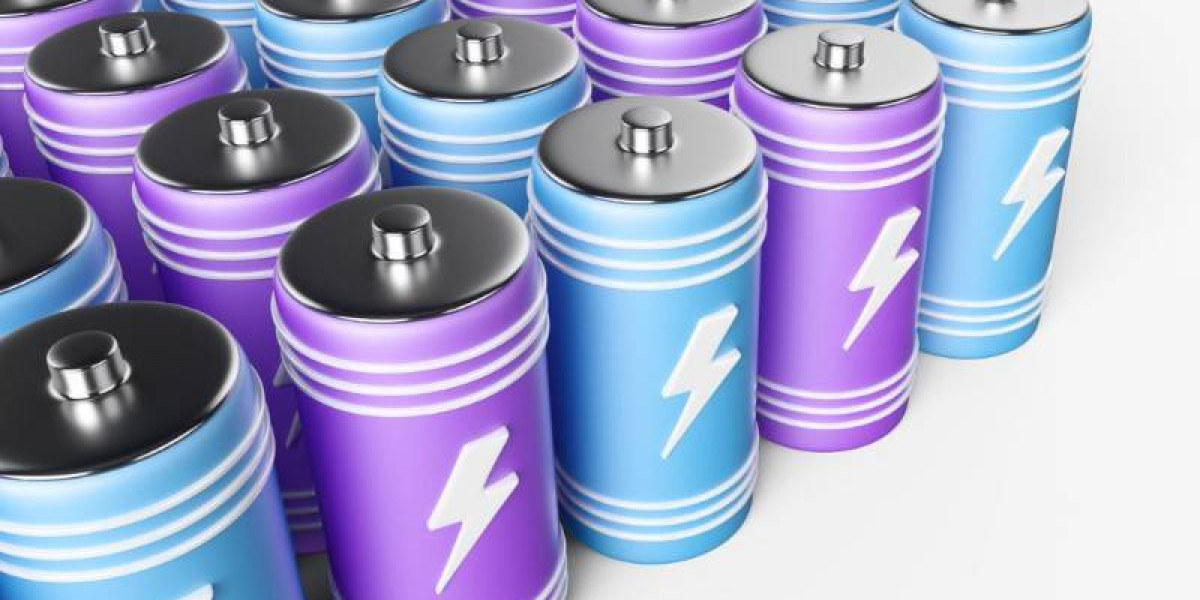Understanding the Lithium-ion Battery Recycling Market
In recent years, as the world has become more reliant on electronic devices and renewable energy sources, the demand for lithium-ion batteries has surged. These batteries power everything from smartphones to electric vehicles, making them an integral part of modern life.
However, with the increased usage comes the challenge of managing the disposal and recycling of these batteries. This has led to the emergence of the lithium-ion battery recycling market, a crucial sector that addresses environmental concerns while also offering economic opportunities.
1. The Growth of Lithium-ion Batteries
Lithium-ion batteries have gained immense popularity due to their high energy density, longer lifespan, and faster charging capabilities. The electric vehicle industry, in particular, has driven the demand for these batteries. As more countries push for reduced carbon emissions, electric vehicles have become a viable alternative to traditional gasoline-powered cars. This surge in demand has created a need for effective recycling solutions.
2. The Importance of Recycling
Recycling lithium-ion batteries is essential for several reasons. Firstly, these batteries contain valuable and limited resources such as lithium, cobalt, and nickel. Recycling these materials not only conserves natural resources but also reduces the environmental impact of mining and processing. Secondly, improper disposal of lithium-ion batteries can lead to hazardous waste leakage, posing risks to soil and water sources. By recycling, we can mitigate these potential environmental hazards.
3. The Lithium-ion Battery Recycling Process
The recycling process of lithium-ion batteries involves several steps. First, the batteries are collected and sorted based on their type and chemistry. Next, they undergo a mechanical shredding process to break them down into smaller components. Chemical processes are then used to extract valuable materials like lithium, cobalt, and nickel. These materials can be further refined and used in the production of new batteries, reducing the reliance on virgin resources.
4. Economic Opportunities
The lithium-ion battery recycling market presents significant economic opportunities. As the demand for lithium-ion batteries continues to grow, the supply of recycled materials becomes crucial for manufacturers. This creates a market for recycling companies to provide a sustainable source of battery materials. Additionally, recycling processes require skilled labor and advanced technologies, leading to job creation and technological advancements.
5. Environmental Benefits
Recycling lithium-ion batteries not only conserves resources but also reduces greenhouse gas emissions. The process of mining and refining virgin materials is energy-intensive and contributes to carbon emissions. By using recycled materials, manufacturers can lower their carbon footprint, contributing to a more sustainable future.
6. Challenges in Recycling
While the lithium-ion battery recycling market holds immense promise, it's not without challenges. One major obstacle is the diverse chemistry of these batteries. Different manufacturers use varying combinations of materials, making the recycling process more complex. Developing standardized recycling methods that can handle a variety of battery types is crucial for the industry's success.
7. Government Regulations and Incentives
Government regulations play a pivotal role in shaping the lithium-ion battery recycling market. Many countries have introduced legislation to encourage recycling and proper disposal of batteries. Additionally, governments may offer incentives to recycling companies to invest in research and technology, further driving innovation in the sector.
8. Technological Advancements
As the market evolves, technological advancements are crucial for improving recycling efficiency. Researchers are exploring innovative ways to streamline the recycling process, such as using hydrometallurgical methods for more effective material extraction. These advancements can lead to higher yields of recovered materials and reduced environmental impact.
9. Consumer Awareness
Raising consumer awareness about the importance of recycling lithium-ion batteries is essential. Many individuals may not realize the potential hazards associated with improper disposal. Educating the public about the benefits of recycling and providing convenient collection points can significantly increase recycling rates.
10. Conclusion
In conclusion, the lithium-ion battery recycling market size plays a vital role in addressing the environmental challenges posed by the growing usage of lithium-ion batteries. By recycling these batteries, we can conserve valuable resources, reduce greenhouse gas emissions, and minimize the risks associated with improper disposal. This industry not only offers economic opportunities but also contributes to a more sustainable and greener future. As technology continues to advance and consumer awareness increases, the lithium-ion battery recycling market is poised for further growth and positive impact.
Related Reports:








